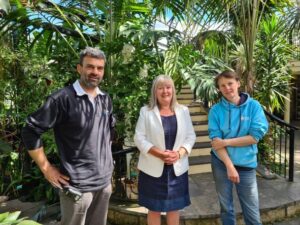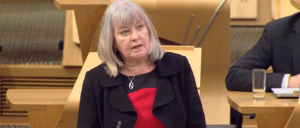SARWAR CALLS FOR EMERGENCY COST OF LIVING ACT
Anas Sarwar has today called for emergency legislation to be the Scottish Parliament’s first priority to help deal with the cost of living crisis.
The plan includes calls for a winter evictions ban, a rent freeze, cancelling school meal debt, halving rail fares and capping the cost of bus journeys.
It also would include additional cash for “bridging payments” for children in receipt of free school meals and support for businesses.
The Scottish Labour leader warned that the economic crisis facing Scots was a national emergency and, like the Covid-19 pandemic, required a radical response from both of Scotland’s governments.
Labour’s plan sets out four areas in which Holyrood should pass legislation immediately in order to protect people’s incomes.
Last week the Scottish Government announced that they are carrying out an emergency budget review in light of the cost of living crisis, but has failed to produce concrete actions using the powers available.
Across the UK, Labour has called for the Tories to wake up to the crisis facing households and act to help people by:
- Freezing energy prices for six months, saving a typical household £1,000.
- Ending the premium paid for energy by around 425,000 customers in Scotland who use prepayment meters.
- Extending energy bills support to all off-grid households – offering help to up to 217,000 Scottish households.
- Supporting businesses in energy-intensive industries with a £1 billion fund.
Scottish Labour has also called for the SNP to stop sitting on their hands, and use the powers of the parliament to act now.
As was the case with the Covid-19 pandemic, Mr Sarwar added that more action will be needed as the situation develops over the winter, but that was not a justification to do nothing now.
Scottish Labour leader Anas Sarwar said: “The cost of living crisis is a national emergency on the scale of the pandemic – and dealing with it requires both of Scotland’s governments to move quickly and decisively.
“Instead we’ve seen silence from Boris Johnson and nothing of value from those squabbling to replace him.
“So while Labour propose a plan that would save families £1000 on their energy bills, Tories call for tax cuts for billionaires.
“But we’ve also seen little of substance from the SNP, ignoring the significant powers they have to act now.
“That is why Scottish Labour is calling for emergency legislation to be put before the Scottish Parliament now, as the starting point for a response to help people without delay.
“Our plan sets out areas where Holyrood can act urgently to help people now – and it could be passed as an Emergency Cost of Living Act when the Scottish Parliament returns.
“While bills spiral and wages struggle to keep up with inflation, the SNP has the power to help people but they’ve failed to take it.
“From freezing rising rents to supporting struggling businesses, Scottish Labour is determined to act.
“People across the UK deserve better than two governments trivialising our politics and ignoring the issues that matter, while they bicker.
“The total lack of ideas and ambition from both our governments has been all too clear.
“But while countless households are facing the impossible choice between heating and eating, oil and gas giants are raking in billions of pounds of profits and being handed tax breaks.
“It’s clear more of the same won’t do.
“We need a response that matches the scale of this crisis – only Labour will deliver that.”
Scottish Labour’s call for emergency legislation is broken down into four areas.
Housing support
- A temporary rent freeze to protect tenants from rent increases.
- A renewed Tenant Grant Fund worth £10 million
- A winter eviction ban to prevent homelessness as a result of this crisis.
Help with transport costs
- Implementing half-price rail fares and providing resources to local authorities so that the cost of bus journeys can be capped.
- Creating an online fuel price checker, following the example of the Northern Irish Consumer Council.
- Freezing rail fares for the next year
Tackling Debt
- Emergency legislation to improve debt solutions
- Writing off school meal arrears
- Increased funding for money advice services
Reducing bills for households and business
- Doubling the Scottish Child Payment bridging payments
- Topping up the Welfare Fund
- Providing a £100 water bills rebate
- Establishing a Business Hardship Fund









